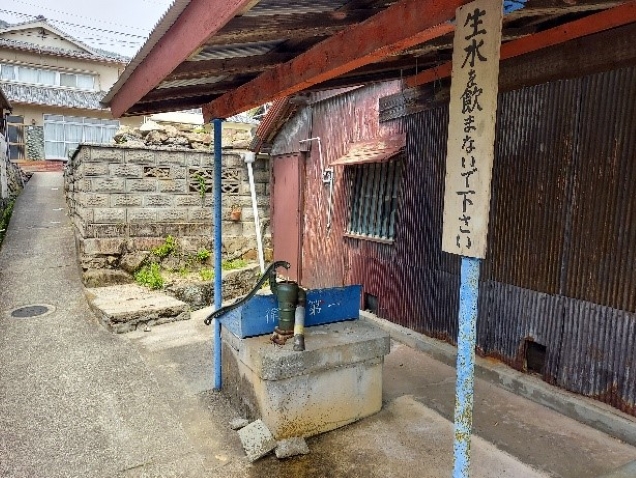Research News
Jan 14, 2025
- Sustainable System Sciences
Hiroshima flooding: a case study of well usage and adaptive governance
Groundwater and multilevel cooperation in recovery efforts mitigated water crisis after flooding
A well used during the 2018 flood in Kure, Hiroshima
Following free inspection incentives, private household wells were opened to the public during water outages. Pictured here is a well with a notice that warns the water needs to be boiled before drinking.
Credit: Osaka Metropolitan University

Society is often vulnerable to disasters, but how humans manage during and after can turn devastation into opportunities for improved resilience.
For instance, private wells are attracting attention as an alternative resource for securing water for daily use and consumption in the event the water supply is cut off after a disaster. However, there are few records on how wells are used in the confusion of disasters, so detailed research is needed to promote the use of emergency wells.
Professor Takahiro Endo of the Graduate School of Sustainable System Sciences at Osaka Metropolitan University conducted a survey on the use of groundwater in Kure, Hiroshima Prefecture, during water supply disruptions due to the 2018 west Japan floods. The study examined actual implementation of adaptive governance, where multiple levels of government, nonprofits, and local individuals cooperate in achieving a desired societal outcome.
It was discovered that Hiroshima Prefecture, in agreement with the water quality inspection organization Hiroshima Environment and Health Association, had provided a free water inspection service for well owners after the water outage. This promoted the initiative to have the inspected wells open to the public. These collaborative efforts made it possible for wells to become available in a short period of time and supplemented the emergency water supply activities of local governments.
“This is a case of emergency water supply policy that makes use of the economic incentive of free water quality testing, which could be a model policy for other local governments considering the introduction of disaster wells,” stated Professor Endo.
These findings were published in Water International.
Funding
This work is supported by the National Research Institute for Earth Science and Disaster Resilience; The Japan Society for the Promotion of Science (JSPS) Grants-in-Aid for Scientific Research [20H04392 and 22K12498]; and the Asahi Glass Foundation.
Paper information
Journal: Water International
Title: Adaptive governance and evolution of a groundwater-based resilient city: a case study of Kure City, Japan
DOI: 10.1080/02508060.2024.2423451
Authors: Takahiro Endo
Published: 8 November 2024
URL: https://doi.org/10.1080/02508060.2024.2423451
Contact
Graduate School of Sustainable System Sciences
Email: endo[at]omu.ac.jp
*Please change [at] to @.
SDGs
